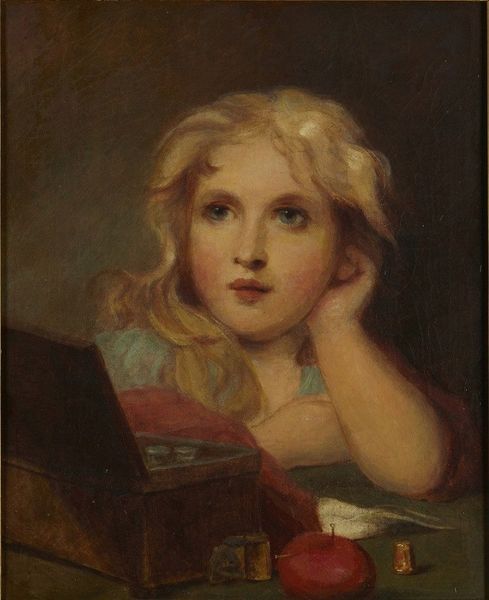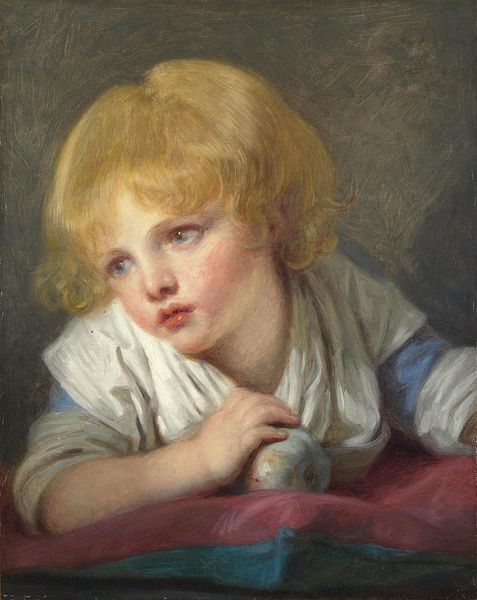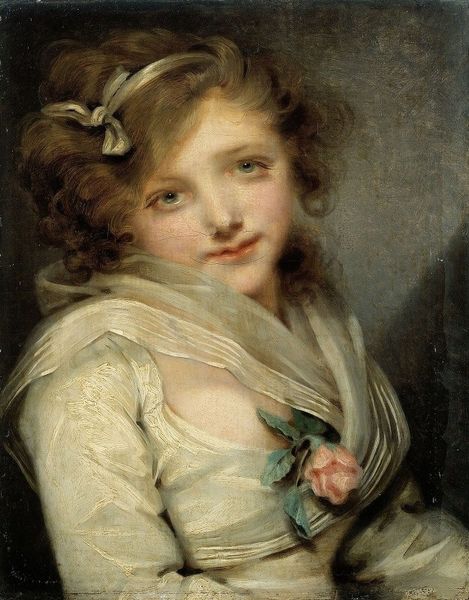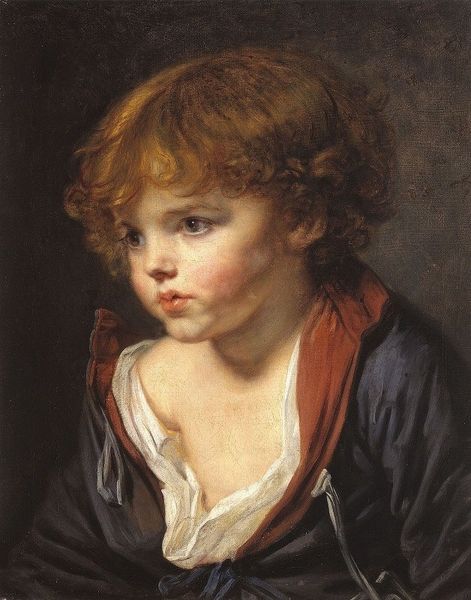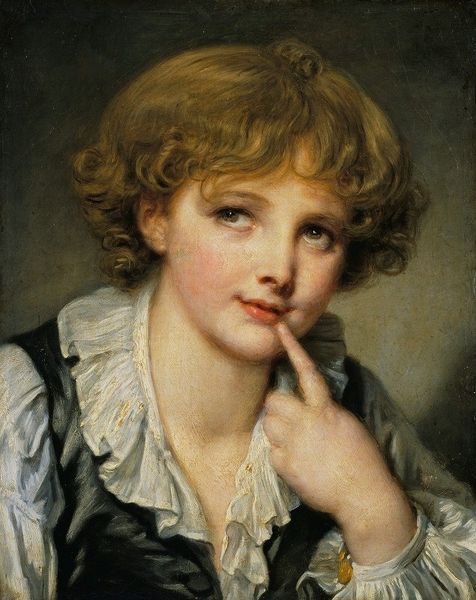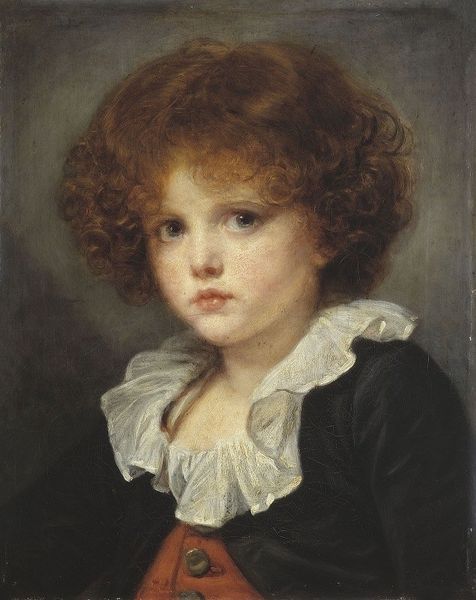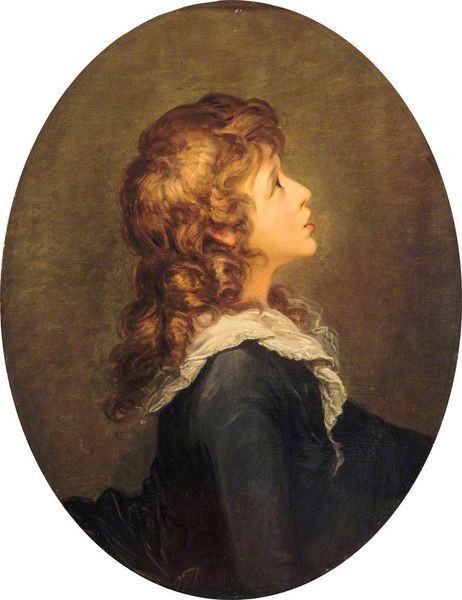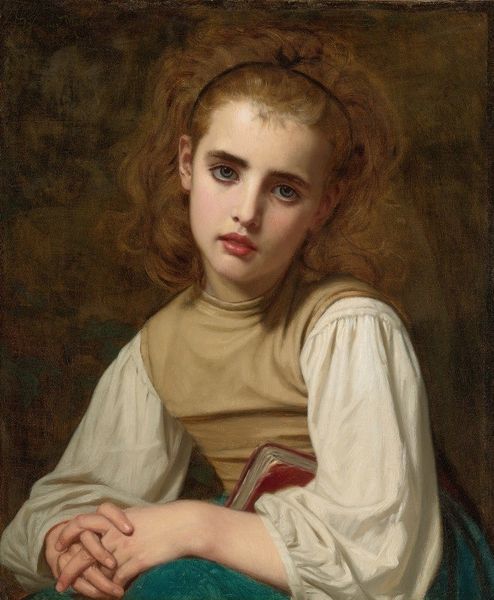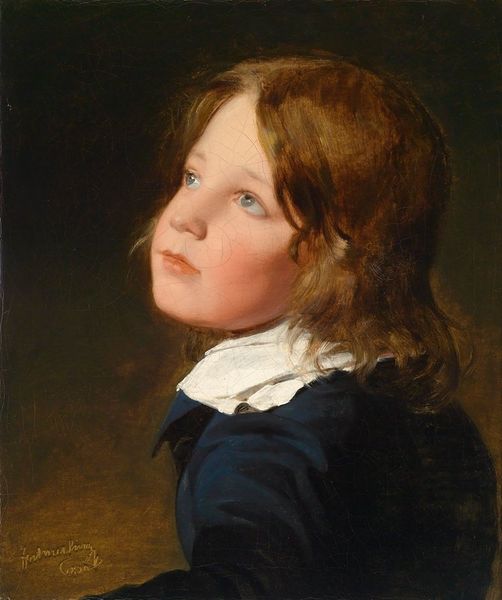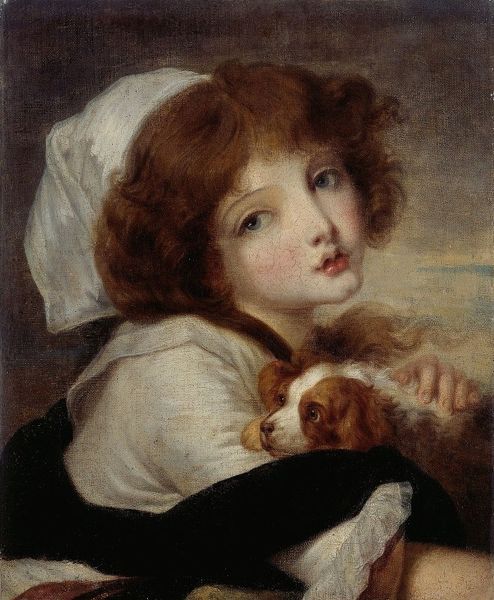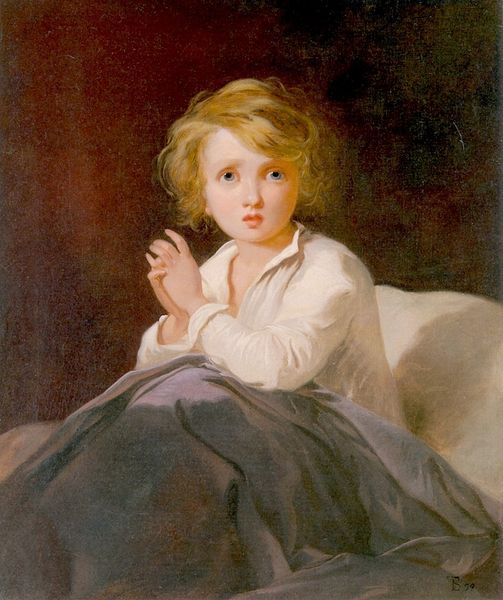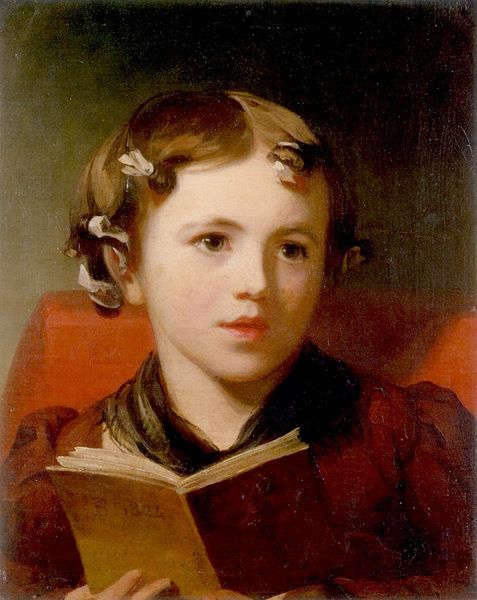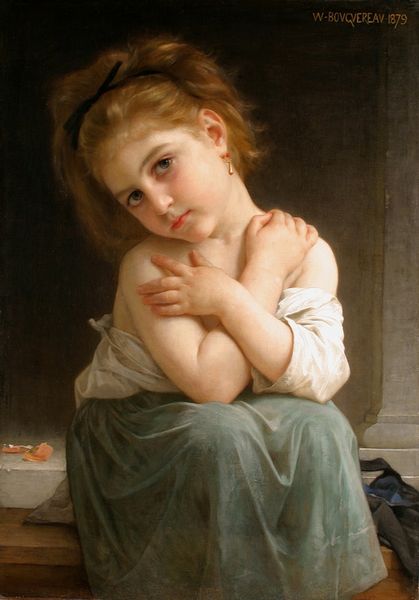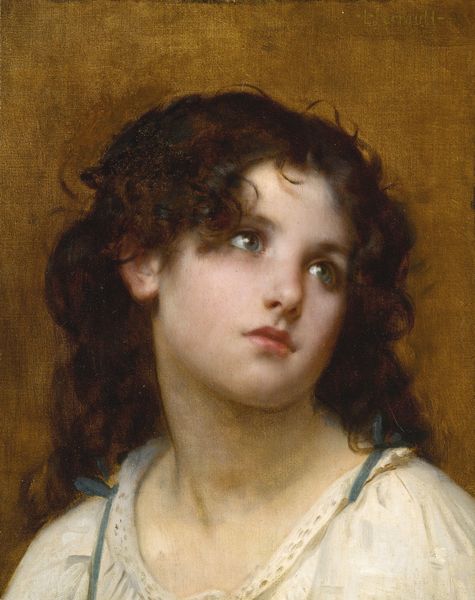
painting, oil-paint
#
figurative
#
painting
#
oil-paint
#
male portrait
#
portrait reference
#
portrait head and shoulder
#
animal portrait
#
animal drawing portrait
#
portrait drawing
#
genre-painting
#
facial portrait
#
portrait art
#
fine art portrait
#
rococo
#
digital portrait
Copyright: Public Domain: Artvee
Curator: This is an oil painting called "Le Petit Mathématicien," which translates to "The Little Mathematician," by Jean-Baptiste Greuze. The subject appears to be a young boy gazing intently at something out of frame. The lighting is soft, almost theatrical, and the painting itself feels quite intimate. What jumps out at you? Editor: The way Greuze renders the fabric of the boy’s shirt is quite captivating; you can almost feel the texture of the linen. But looking at it more closely, it makes me wonder about the social context of the time. How does the boy's attire speak to production of garments in that era? Curator: Precisely. Consider the labor involved in creating that fine linen, from the cultivation of flax to the weaving and bleaching of the fabric. The ruffle-trimmed shirt suggests a level of comfort and social status, which meant access to materials and artisanal skill. Do you think the choice of oil paint enhances or detracts from this reading? Editor: I think it enhances it, actually. Oil paint allows for that incredible detail and capturing the textures, it almost elevates the craftsmanship of the linen itself. Was this focus on material culture a common theme in Greuze's work or in the Rococo period generally? Curator: It's interesting you ask that. Greuze was known for his genre paintings, often focusing on domestic scenes and moral narratives. This almost fetishistic rendering of materials subtly reinforces class distinctions. It moves beyond just depiction, toward underlining the value and privilege attached to these goods. Could this connect to consumer culture back then? Editor: I suppose it highlights a growing consumer culture, where the artistry in clothing and everyday objects became indicators of wealth and status. So, the materiality itself is the message, really! I never thought of portraiture that way. Curator: Indeed! And the skill and labor that goes into creating even the humblest object is an angle of artistic production well worth investigating, as it is not just about the artistry but the material world in which we all live.
Comments
No comments
Be the first to comment and join the conversation on the ultimate creative platform.
